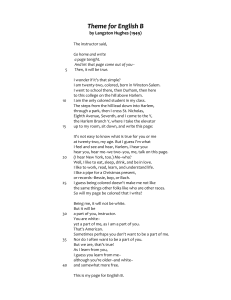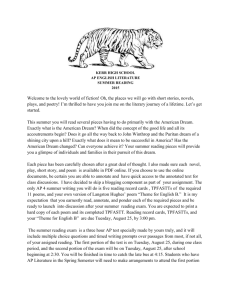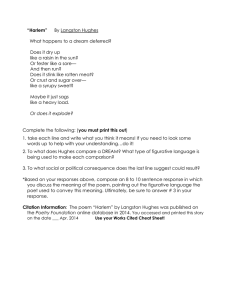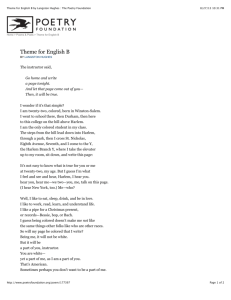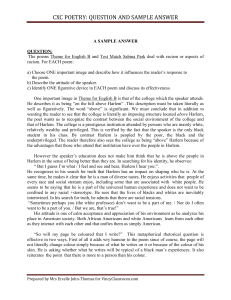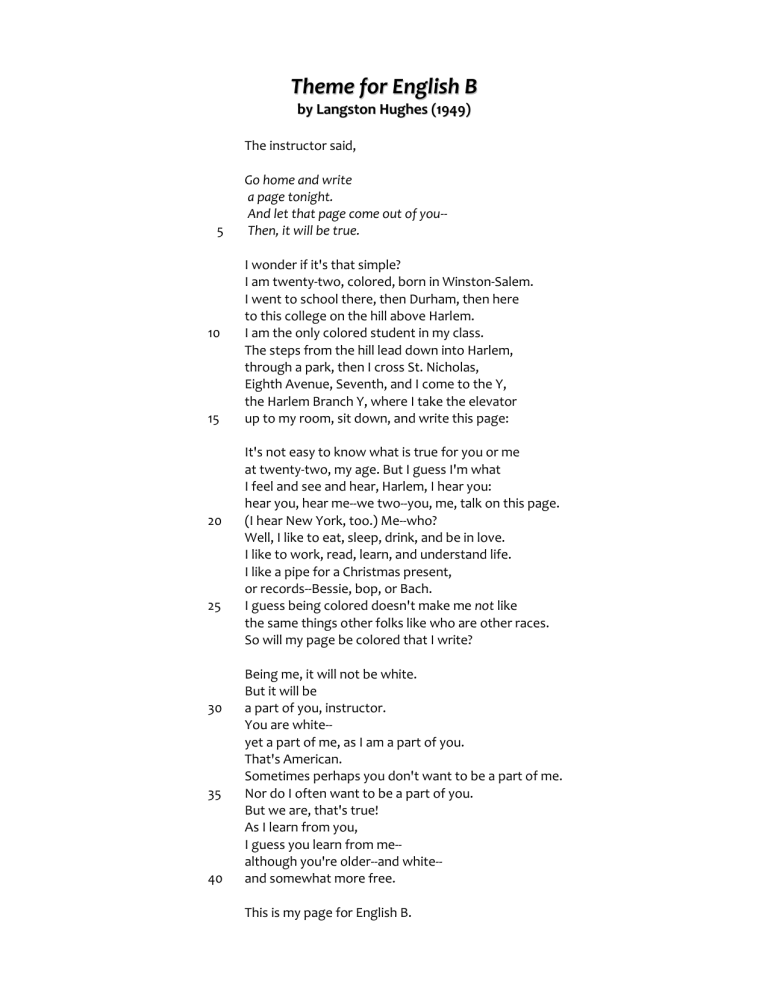
Theme for English B by Langston Hughes (1949) The instructor said, 5 10 15 20 25 30 35 40 Go home and write a page tonight. And let that page come out of you-Then, it will be true. I wonder if it's that simple? I am twenty-two, colored, born in Winston-Salem. I went to school there, then Durham, then here to this college on the hill above Harlem. I am the only colored student in my class. The steps from the hill lead down into Harlem, through a park, then I cross St. Nicholas, Eighth Avenue, Seventh, and I come to the Y, the Harlem Branch Y, where I take the elevator up to my room, sit down, and write this page: It's not easy to know what is true for you or me at twenty-two, my age. But I guess I'm what I feel and see and hear, Harlem, I hear you: hear you, hear me--we two--you, me, talk on this page. (I hear New York, too.) Me--who? Well, I like to eat, sleep, drink, and be in love. I like to work, read, learn, and understand life. I like a pipe for a Christmas present, or records--Bessie, bop, or Bach. I guess being colored doesn't make me not like the same things other folks like who are other races. So will my page be colored that I write? Being me, it will not be white. But it will be a part of you, instructor. You are white-yet a part of me, as I am a part of you. That's American. Sometimes perhaps you don't want to be a part of me. Nor do I often want to be a part of you. But we are, that's true! As I learn from you, I guess you learn from me-although you're older--and white-and somewhat more free. This is my page for English B. Ms. Singer Name___________________________________ English 12 Date_____________________Period_________ Theme for English B Discussion Questions How do we represent ourselves? What becomes important for others to know? The speaker in “Theme for English B” asks if the color of his skin affects his writing. This poem raises race questions – and questions of location and personal freedom – and resolves them in its own way. It also raises the question of what one’s true self is, a prominent inquiry in The Color of Water. 1. What do you notice about the structure of the poem? What marks its beginning, middle, and end? 2. What is the focus/main idea of each stanza? Which parts are developed in more detail than others and why? 3. What do you notice about the style of this poem? Where does Hughes use rhythm and rhyme, and how do they affect the poem? 4. What unique word choices (diction) does Hughes make in order to characterize the speaker? What literary techniques are present in the poem, and how do they help add meaning? 5. What do you think is the intent of the poem? Describe the author’s tone, providing specific examples to support your opinion. 6. What is the narrator struggling with in the poem? How do you know? 7. In what ways does the speaker define himself? In what terms does he state his identity (i.e., how does he answer the question “who are you”)? 8. How does society identify the narrator? 9. How is the theme of self-identification vs. societal-identification also prevalent in The Color of Water? 10. In what ways does James struggle to define himself? In what ways does Ruth struggle to define herself?
